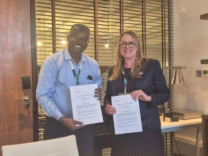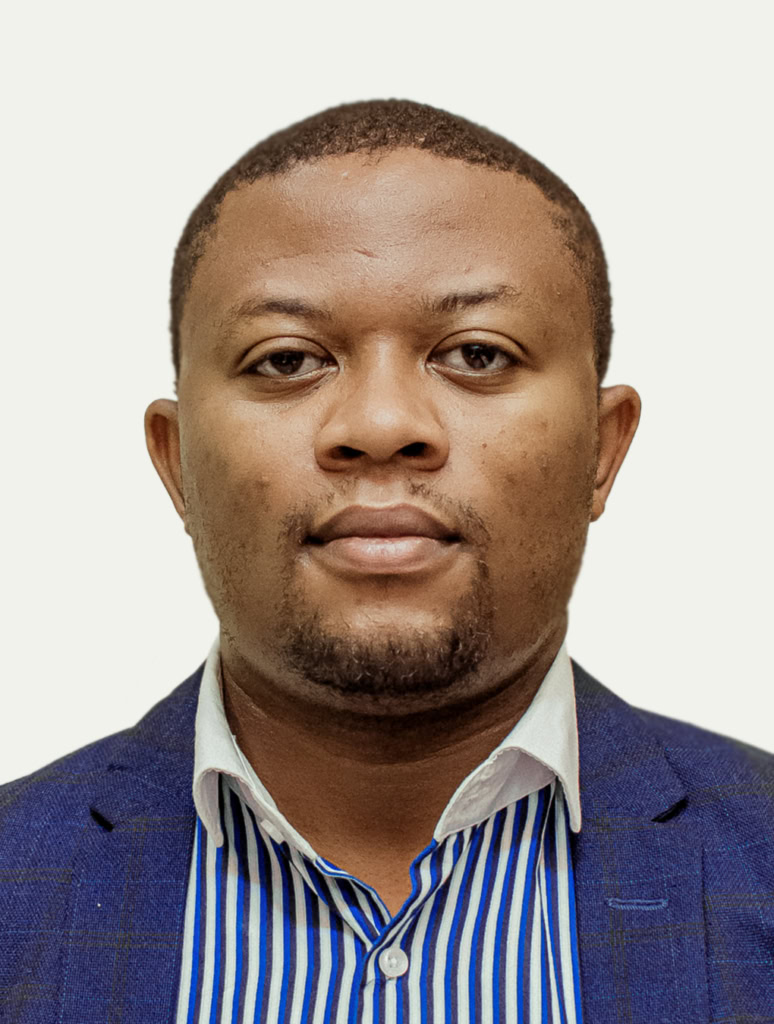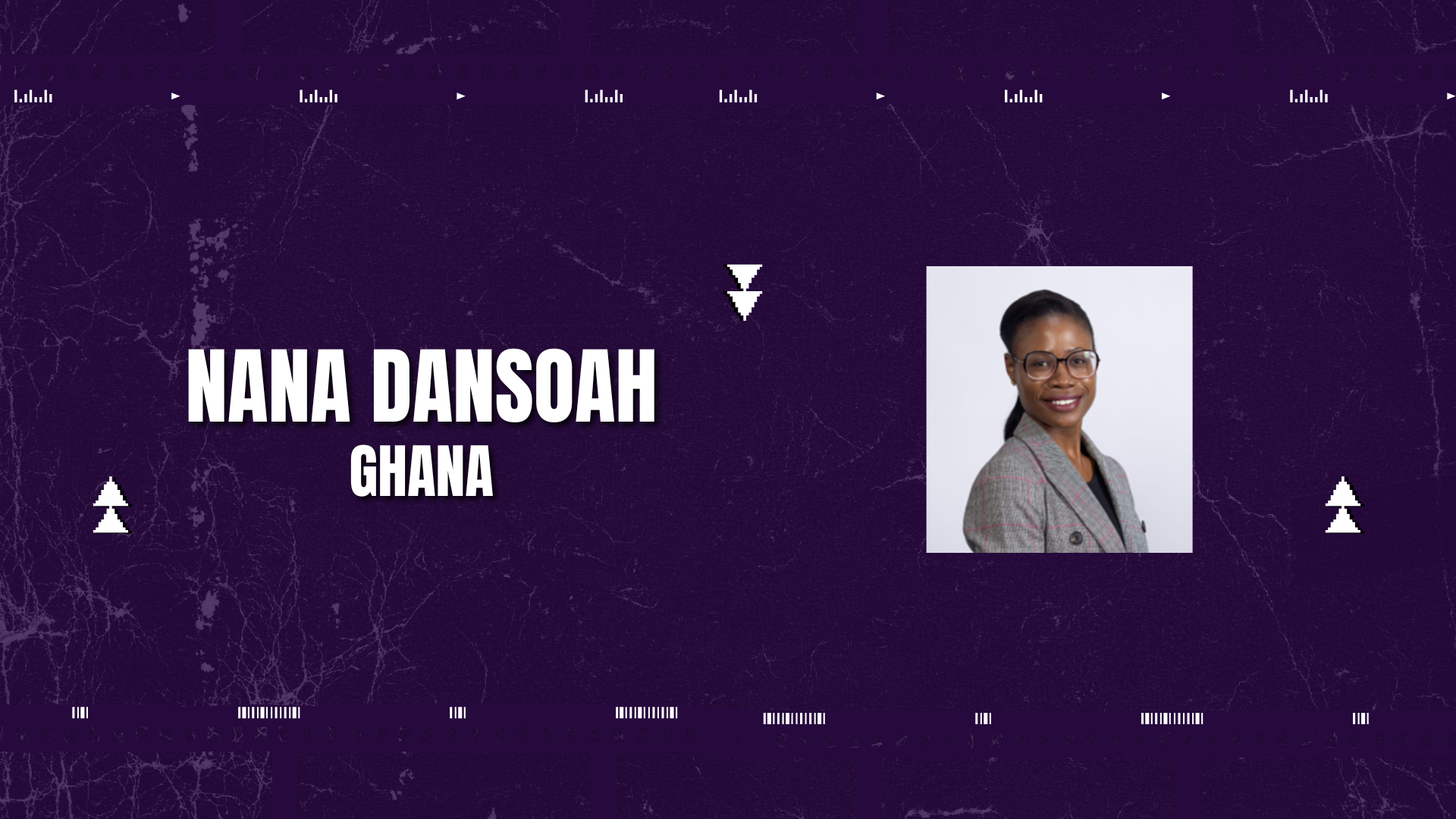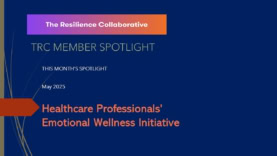

Member Spotlight: Samuel Lwamushi Makali
24 January 2025
This conversation is part of our TRC Member Spotlight series. We had the pleasure of speaking with Samuel Lwamushi Makali, a valued TRC member from the Democratic Republic of the Congo. Join us as we delve into his inspiring journey and gain valuable insights into his perspectives on resilience.
Welcome Samuel, we are glad to have you share your story and perspectives with the TRC community, thank you! Please tell us a bit about yourself.
My name is Samuel Lwamushi Makali, and I am a medical doctor who graduated from the Catholic University of Bukavu (UCB), DRCongo, in 2016. At the end of my medical training, I began a clinical career at the Hôpital Provincial Général de Référence de Bukavu in the emergency and intensive care unit. In parallel with my clinical work, I completed a master's degree in community health at the same university in 2018. I then focused on my clinical career from 2019 to 2021 before starting a PhD in public health at the Université Libre de Bruxelles in the health policy and systems research centre, in 2021. During my PhD, I explored the theme of the resilience of my country's health system in the context of the complex crisis facing its eastern region. I finished my PhD in September 2024. I am currently Associate Professor at the UCB Regional School of Public Health and a researcher in health policies and systems.

- Describe some of the work you have been undertaking in the field of resilience.
The research I carried out on resilience focused on the operational level of the Congolese health system (the health district). The main question of my research was to understand how health districts, which have been facing chronic (for more than two decades) and complex crises consisting of acute shocks (epidemics, natural disasters, etc.) and chronic stresses, both intrinsic (linked to failures in the health system, such as lack of funding or medicines) and extrinsic (mainly linked to armed conflicts and population displacements), continue to be operational and provide basic care to the population. I found that these health districts had developed a minimally adaptive resilience that had a number of weaknesses, such as forgetting to emphasize the quality of care and the lack of multi-sectoral involvement in crisis management. The research led to recommendations aimed at strengthening the health system at strategic areas in order to move from this minimum adaptive resilience to a more complete organizational resilience (find my thesis dissertation on Di-Fusion ULB: here)
Can you describe your research on resilience in the context of crises or armed conflict/affected areas?
I conducted an extreme case study comparing a health district that had never been affected by armed conflict to another health district that had been severely affected (find it here). To classify these health districts, I used two objective indicators: the number of deaths directly linked to armed conflicts and the number of internally displaced people due to these conflicts. The aim of the comparison was to explore the level of resilience of these two health districts. I used Kruk's resilience index for this exploration, using mixed methods (qualitative and quantitative). As results, > 98% of participants agreed that the essential components of a resilient HDs were prior knowledge of the strengths and weaknesses as well as the public health risk posed by the crisis (awareness), together with community and non-health actors’ involvement during the crisis (Integration). Common resilience mechanisms (e.g. epidemic management plan, crisis management committee) were identified, and the more affected health district implemented additional mechanisms, including DRCongo armed forces involvement, community healthcare sites and mobile clinics, specific warning system, and regular socio-demographic monitoring of displaced persons alongside promotion of activities for social cohesion strengthening.
Could you share a common resilience practice that you or your team follow regularly?
In everyday practice, coping mechanisms are more easily visible in our resilience research sites. We can also see certain mechanisms for the immediate absorption of shocks that health districts are developing, with the support of technical and financial partners. Transformation, on the other hand, is very little developed, especially as it requires multi-sectoral involvement and a strong political will. We are also looking at sustainable strategies that we can be gradually put in place to help health districts develop a culture of learning from the resilience strategies developed during crisis management, so that they can be better prepared for the future. But this requires resources that are unfortunately not available.
How did you become involved with The Resilience Collaborative (TRC)?
I was informed of the existence of TRC by one of my thesis supervisors. She advised me to take part in a virtual panel discussion (in January 2024) with TRC members who shared their experiences around the theme of “What is Resilience, by the way?” I found it very interesting, with experienced speakers sharing their views on what resilience is, based on their research. I was able to introduce myself and briefly share what I was doing in my PhD. I therefore applied to be a TRC member and I'm delighted that this has been accepted.
What are your aspirations as a member of this community of practice (COP), TRC?
As a member of TRC, my aspirations are:
(1) to learn from other experienced TRC members about their work and projects on strengthening the resilience of health systems and
(2) to participate in working sessions with other TRC members to develop practical tools that can support the operational understanding of resilience and the implementation of resilience building strategies.
Are there specific aspects of the TRC community that you find most rewarding or enjoyable?
For me, the aspects of the TRC community that I find most useful are the regularly shared newsletters, the experts' panel discussions and the various published research papers on resilience.
Do you have any tips or advice for new TRC members?
TRC is an interesting platform for learning about resilience in a real-life situation. Sharing experiences is a key element in understanding how to build more resilient health systems. I'm sure that by pooling our efforts, we can produce some interesting resources that can guide policymakers and those working in the field in strengthening the resilience of their health systems when facing various shocks and stresses.
Any message you'd like to convey?
I am very happy to be part of the TRC community and would advise anyone interested in strengthening the health system in a variety of complicated contexts to join TRC. You can find me on LinkedIn: www.linkedin.com/in/samuel-lwamushi-makali-md-mph-phd-9aba08166
We are thankful to Samuel for sharing his journey with us! If you have questions for Samuel or would like to connect with him, please send us a message, and we will be happy to connect you! Also, if you’d like to be featured on this spotlight series or you’d like to nominate someone, please write to us: TRC.Community@georgeinstitute.org
All Images courtesy of Samuel Lwamushi Makali
Continue reading


Member Spotlight: Nana Dansoah
Sep 30, 2025
Introducing the FLW Advisory Panel: Co-Designing for Impact
May 09, 2025
Member Spotlight: Healthcare Professionals’ Emotional Wellness Initiative (HPEWI)
May 09, 2025
Subscribe to the TRC
E-newsletters
Subscribe to The Resilience Collaborative newsletter for timely updates, valuable resources, and insightful content specifically tailored to support the resilience of healthcare workers